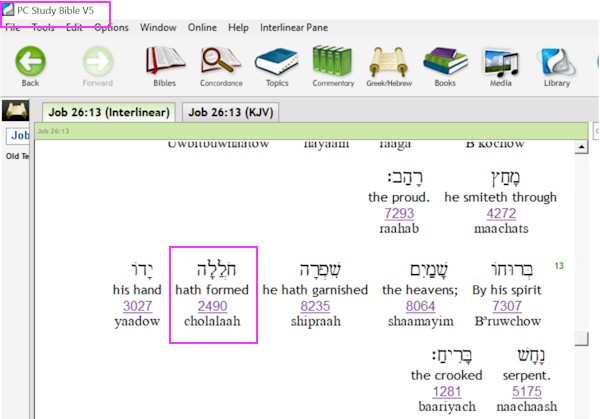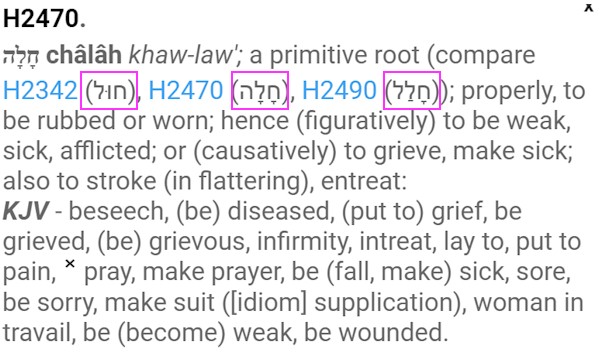The formation of the Universe is one of the most severe dividing factors between Science and Theology. Is it possible to resolve this issue by understanding what the Biblical Hebrew has to say? Yes, it is.

Formation of the Universe, Does the Bible corroborate Big Bang? Are true Science and true Theology at loggerheads?
Passages about the formation of the Universe are in remote contexts of the Bible, here’s an enlightening one. Galacti, using the online Bible tool at UnlockBibleMeaning.com, keys in the somewhat obscure book of Job. The passage we’re examining relates to conversations of Job and his four friends regarding the reasons behind a severe hardship Job is going through. Job’s friends in this passage have a sum of knowledge and an in-depth understanding of nature that is notable and outstanding.
(Origin of the Universe, chapter 6.3)
Over the last two blogs, we have seen kuwn = ordained: fashion (blog 1), firm, stable (blog 2) referring to how God’s finger worked in the formation of the Universe.
In the course of their discussion, they broach some of the most fundamental questions—about the formation of the universe, earth, humankind, and why it’s here. Job’s conversation takes place mainly with three of the friends who beat around the bush, while the youngest of the four friends finally gives the correct answer—and God Himself concludes that answer.
We are going to do a word-by-word exploration of a few verses of this discourse and glean what we can about the origins of the cosmos.
I must admit that I was somewhat dumbfounded (maybe it’s a fairy tale?) when I initially came on these verses. And even now, I wonder whether Job understood the depth of what he uttered or whether Biblical Hebrew is inspired enough to use vocabulary that expressed scientific matters about the formation of the Universe far beyond the comprehension level at his period in history. Bear in mind; he sees the same cosmos in his day and age that we’re witnessing today; however, in our time, millennia later, with sophisticated measuring devices, we can begin to grasp the profoundness of these words.
Biblical Hebrew is inspired enough to use vocabulary that expressed scientific matters about the formation of the Universe far beyond the scientific comprehension level of the time of the writing of the Bible. Click To TweetWe’ll read the translated words in English. Once again, not casting stones at the translators, let’s realize that it is not always easy to perceive the sense of particular sayings. Here are two different translations of Job 26:13,
By his spirit he has garnished the heavens; his hand has formed the crooked serpent. (King James Version).
By his (God’s) breath the skies became fair; his hand pierced the gliding serpent’. (New International Version)
Galacti wonders, “What does this mean? In what way were the heavens garnished? How did God’s hand form / pierce the gliding, crooked serpent? Ever heard of a crooked serpent?” There is one who is a main character in our drama, which is undoubtedly crooked and a liar, but this verse doesn’t have anything to do with that individual.
Garnish
Let’s give the words garnish and formed the star treatment. When we digest this verse as a whole, we realize it is referring to the use of God’s power to create and regulate the physical cosmos–the formation of the Universe. (see Further Study below).
Job’s story is the only place in the Old Testament that uses this verb form garnish–H8235 from the three-letter root H8531. As we shall see in the upcoming contexts, there are quite a few one-time-only usages in the book of Job. I think this reveals the extent of the uniqueness of the dialogue through these expressions. Let’s examine this singular vocabulary.
שִׁפְרָה shiphrâh shif-raw’; from H8231 (שָׁפַר); brightness: KJV – garnish.
שָׁפַר shâphar shaw-far’; a primitive root; to glisten, i.e. (figuratively) be (causatively, make) fair: KJV – ⨯ goodly.
שַׁפְרוּר shaphrûwr shaf-roor’; from H8231 (שָׁפַר); splendid, i.e. a tapestry or canopy: KJV – royal pavilion.
שְׁפַרְפַר shᵉpharphar shef-ar-far’; (Aramaic) from H8231 (שָׁפַר); the dawn (as brilliant with aurora): KJV – ⨯ very early in the morning.
If this is the first time you’re reading this blog, which uses Biblical Hebrew, please see Further study below and the reference to how and why I use Biblical Hebrew.
Notice that H8235-garnish derives from the primitive root H8231, which is the most basic structure of a word. Now, for another fundamental principle in the understanding of the relationship of Biblical Hebrew words.
Every Biblical Hebrew word that is based on the SAME ROOT (in this case: H8231) is related to ALL the OTHER WORDS (in this case: H8235, H8237 and H8238) based on that SAME ROOT.
A derivative (see Further Study below) of H8231 is 8237, translated in the KJV as ‘royal pavilion.’ In the book of the prophet Jeremiah, we see the literal pavilion in all its glory:
And say unto them, Thus saith the LORD of hosts, the God of Israel; Behold, I will send and take Nebuchadrezzar the king of Babylon, my servant, and will set his throne upon these stones that I have hid; and he shall spread his royal pavilion (H8237) over them.
Here’s the understanding of Job’s words when he uttered (in Biblical Hebrew) “by his spirit he has garnished the heavens.” To garnish the heavens refers to creating a splendid bejeweled tapestry for a royal pavilion that glistens and is goodly, fair and bright (notice that all these words come from the KJV translators and Strong’s references).
Job:26.13 states: 'by his spirit he (God) has garnished the heavens...' The meaning of the Biblical Hebrew word for 'garnish' refers to creating a splendid bejeweled tapestry for a royal pavilion that glistens and is fair and… Click To TweetCould we have a more marvelous depiction of what spreads aloft over our heads? An interwoven array of jewels on a vast twinkling rotunda: our bespeckled sky and the outreaching universe. We visited the stars on our tour when we took Inventory of the Universe but never quite looked at the sky that way because we focused on our inventory. Now we stop to admire the heavens God has shaped and garnished with myriads and myriads of dazzling scintillating celestial bodies.
Formed as in Formation of the Universe
Job 26:13 expresses this concept of God’s Spirit garnishing the heavens, and Job continued to expand on this concept by adding, “…his hand has formed (H2342) the crooked serpent.”
חוּל chûwl khool; or חִיל; a primitive root; properly, to twist or whirl (in a circular or spiral manner), i.e. (specifically) to dance, to writhe in pain (especially of parturition) or fear; figuratively, to wait, to pervert:
KJV – bear, (make to) bring forth, (make to) calve, dance, drive away, fall grievously (with pain), fear, form, great, grieve, (be) grievous, hope, look, make, be in pain, be much (sore) pained, rest, shake, shapen, (be) sorrow(-ful), stay, tarry, travail (with pain), tremble, trust, wait carefully (patiently), be wounded.
Unfortunately, I need to digress because I recently made a discovery. It will be to our advantage, though. When I originally did this Big Bang study, I was using a different Bible Study tool than what I use today. I still have my original PC Study Bible program and here’s an image of the interlinear for Job 26:13
Notice that it gives the Strong’s reference 2490 whereas, for the same word, I gave you the reference 2342. Surprise! It looks like an error or a contradiction. I couldn’t figure it out for a while, and I still don’t know why PC Study Bible has H2490 while all the other Strong’s Concordance I consulted have 2342. It is still a mystery to me. However, let’s also look at Strong’s H2490 and see where it leads us:
חָלַל châlal khaw-lal’; a primitive root (compare H2470 (חָלָה)); also denominative (from H2485 (חָלִיל)) properly, to bore, i.e. (by implication) to wound, to dissolve; figuratively, to profane (a person, place or thing), to break (one’s word), to begin (as if by an ‘opening wedge’); to play (the flute): KJV – begin ([idiom] men began), defile, ⨯ break, defile, ⨯ eat (as common things), ⨯ first, ⨯ gather the grape thereof, ⨯ take inheritance, pipe, player on instruments, pollute, (cast as) profane (self), prostitute, slay (slain), sorrow, stain, wound.
H2490 suggests we compare this word with 2470 so, let’s do it:
חָלָה châlâh khaw-law’; a primitive root (compare H2342 (חוּל), H2470 (חָלָה), H2490 (חָלַל)); properly, to be rubbed or worn; hence (figuratively) to be weak, sick, afflicted; or (causatively) to grieve, make sick; also to stroke (in flattering), entreat: KJV – beseech, (be) diseased, (put to) grief, be grieved, (be) grievous, infirmity, intreat, lay to, put to pain, ⨯ pray, make prayer, be (fall, make) sick, sore, be sorry, make suit ([idiom] supplication), woman in travail, be (become) weak, be wounded.
Wow, we’ve gone full circle: H2470 (UnlockBibleMeaning.com and other online Strong’s) has referred us back to H2342 and included H2490 (PC Study Bible). Look at the 3 Hebrew words I’ve emboldened above and see why. I know you probably can’t read Hebrew, but compare the Hebrew letters.
We have two identical letters in each of these three words:
- ח – the chet
- ל – the lamed
The other two letters, the ה (hay) and the וּ (vav), are vowels. Notice in the references that ALL three words are ‘primitive roots.’ Conclusion: Having the same two root letters and all three words being primitive roots, we can say that certain Biblical Hebrew RELATE AMONG THEMSELVES. I don’t want to get into grammar, but I’ll add that two-letter roots are unusual (it’s generally three letters), and in this circumstance, it’s not uncommon to find the last letter doubled, which is the case of H2490 where we see the lamed doubled.
The unfortunate fact that the Strong’s reference in PC Study Bible and other Study tools aren’t identical has no incidents on the outcome, because both H2342 AND H2490 relate through their roots.
This single Biblical Hebrew word should make us realize not only the problems faced by translators but also readers like our audience, you, and me. With so many translated word options, how can we hope to understand this? It is normal to wonder what the relationship between all of these renditions of formed is.
There variations of the Biblical Hebrew word, chalal, in Job 26:13 translated 'formed' reveal the details of how God formed, how He went about the process of the formation of the Universe. Click To TweetThere variations of formed reveal to us how God formed, how He went about the process of the formation of the Universe.
As I said, all three prime roots have related meanings, two of which we shall broach later on. Next week we will focus on H2342, and I will show you its relationship to Genesis creation and Big Bang, in other words, the formation of the Universe. We’ll do a brief synthesis based on the above translations. I suggest you meditate on those translations. See how to do this in Further study below.
This blog post is an excerpt from chapter 6.3 of the book Origin of the Universe
Further Study
Go over to UnlockBibleMeaning.com. Read the context around Job 26:13; in a nutshell, this story of Job revolves around Job, who, as a righteous individual, undergoes the severest of trials. He talks about the power of God, but the end of the book reveals, however, that Job has a severe problem. I will not disclose it now, as there are other allusions to the Genesis creation, that show the relationship of God to Job, and through him, all human beings.
To study the meaning of formed in Job 26:13 mouseover the bottom of the Strong’s reference and click on Hebrew Concordance for H2342. Read the verses where this Biblical Hebrew word appears in the Old Testament. Get a feel for the OVERALL use of the word. Each usage is an ASPECT of HOW GOD FORMS. Once you have that, then do your own synthesis of how God created.
Biblical Hebrew words carry within themselves variations on the deeper meaning. That’s why H2342 is used about 60 times in the OT, but the KJV translators had to use about 27 different English words and expressions to render it. That ratio of 60/27 is quite high. Some would have us believe that it should be 60/1; in other words, every time we see H2342, it would always be translated with the SAME English word. Begin to see:
- A 60/1 translation would stunt and limit our comprehension of this Biblical Hebrew word.
- EACH Biblical Hebrew word tells a fascinating story. This one is about how God formed.
There are many, many such Biblical Hebrew stories. We are only just beginning to get the gist of the whole picture. Each word is a piece of the puzzle with all of its contours–pieces of the story picture The Explanation will help you assemble.
Feel free to share this blog post on social media and with your family and friends who you know would be interested in deepening their comprehension of the Bible.
Dig Deeper into The Explanation
Join The Explanation Newsletter to stay informed of updates. and future events. No obligations, total privacy, unsubscribe anytime, if you want.
Online Study Courses to Unlock Bible meaning via Biblical Hebrew… with no fuss. Free video courses that put you in the driver’s seat to navigate the Bible as never before. Join now
The Explanation series of seven books. Free to read online or purchase these valuable commentaries on Genesis 1-3 from your favorite book outlet. E-book and paperback formats are available. Use this link to see the details of each book and buy from your favorite store.
Since you read all the way to here… you liked it. Please use the Social Network links just below to share this information from The Explanation, Formation of the Universe – Does the Bible Corroborate Big Bang, or not?




Isn’t the crooked serpent the constellation Draco? In appearance it spans the universe.
Yes, definitely possible considering Job 9:9 where actual constellations are named. And the constellation Draco does fit the context here. I expanded on the Hebrew meaning, especially going back to the roots of these words ‘crooked’ (fleeing) and ‘serpent’ (hissing). Please see https://theexplanation.com/stephen-hawking-a-universe-from-nothing-correct-or-incorrect This reference could have both a literal (the constellation) and more figurative meaning (universal echo). Thanks for your input.